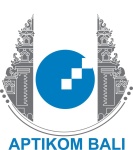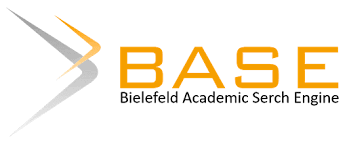LITERASI KEUANGAN DIGITAL: MENANGKAL JERATAN PINJAMAN ONLINE
DOI:
https://doi.org/10.59819/sewagati.v4i1.4848Abstract
The rapid development of digital technology has led to the emergence of financial technology lending (fintech lending), including online loan services that offer convenience and accessibility. However, these conveniences often come with hidden risks, particularly for individuals with low financial literacy. This community service program was conducted in Sumerta Village, East Denpasar, Bali, aiming to increase public awareness and understanding of personal financial management and the dangers of illegal online loans. The program implemented an interactive educational approach through public seminars, direct discussions, and the use of printed and digital media such as posters and stickers. The activities successfully raised community awareness regarding how to identify legal and illegal loan platforms and how to manage personal finances more responsibly. The initiative also empowered local residents to become financial literacy advocates within their communities. Overall, this program demonstrates the importance of strengthening digital financial literacy at the grassroots level to protect communities from predatory lending practices and to build sustainable financial behavior.
Downloads
References
Amaliyah, A. R., Judijanto, L., Apriyanto, A., Rustam, A., Pradjono, N., Desai, D. E., & Risman, A. (2025). Manajemen Keuangan: Teori dan Praktik dalam Mencapai Financial Freedom. . PT. Sonpedia Publishing Indonesia.
Dianiati, T. N. (2023). Perancangan Komunikasi Visual sebagai Kampanye Kesadaran 5R untuk Siswa Kelas XI Animasi dan DKV SMK Pusat Keunggulan di Yogyakarta. Institut Seni Yogyakarta.
Irawati, I. (2022). Dampak Pandemi Covid-19 Terhadap Kemiskinan Dan Kebijakan Pengentasan Kemiskinan di Indonesia Dalam Perspektif Ekonomi Islam. Jurnal Ekonomi Dan Bisnis Syariah, 1(1).
Kalsum, U., & Utami, D. (2024). Memperkuat Pemahaman Mahasiswa Terhadap Literasi Keuangan Syariah Melalui Pengenalan Produk dan Akad Perbankan Syariah. Abdi: Jurnal Pengabdian Dan Pemberdayaan Masyarakat, 7(1), 48–56.
Mukhoyyaroh, V. D. (2024). Pendidikan Karakter dan Pembuatan Poster Sebagai Upaya Pencegahan Bullying di SMP Tahfidh Yanbu’ul Qur’an 5 Tegal. Semarang State University Undergraduate Law and Society Review, 4(1).
OJK. (2019). Laporan Perkembangan Keuangan Syariah Indonesia 2018.
OJK. (2021). Statistik IKNB Periode September 2021.
Setyadi, Y. D., Wulandari, D., Lestari, L. D., Meliasari, W. O., & Sari, I. N. (2021). Peran Mahasiswa Kampus Mengajar 2 Sebagai “Agent of Change dan Social Control.” Dinamisia: Jurnal Pengabdian Kepada Masyarakat, 5(6), 1542–1547.
Yasin, M., Kelrey, F., Ghony, M. A., Syaiful, M., Karuru, P., Pertiwi, A., & Aryanti, N. (2023). Media Pembelajaran Inovatif: Menerapkan Media Pembelajaran Kreatif untuk Menyongsong Pendidikan di Era Society 5.0. PT. Sonpedia Publishing Indonesia.
Downloads
Published
Issue
Section
License
Copyright (c) 2025 I Made Sudiksa, I Nyoman Sunarta, Gusi Putu Lestara Permana, I Made Suidarma, Ketut Elly Sutrisni, Ni Kadek Ayu Trisnadewi, I Gede K. Ananta Yoga

This work is licensed under a Creative Commons Attribution-ShareAlike 4.0 International License.
Authors who publish with the Jurnal Sewagti agree to the following terms:
1. Authors retain copyright and grant the journal the right of first publication with the work simultaneously licensed under a Creative Commons Attribution License (CC BY-SA 4.0) that allows others to share the work with an acknowledgment of the work's authorship and initial publication in this journal.
2. Authors are able to enter into separate, additional contractual arrangements for the non-exclusive distribution of the journal's published version of the work (e.g., post it to an institutional repository or publish it in a book), with an acknowledgment of its initial publication in this journal.
3. Authors are permitted and encouraged to post their work online (e.g., in institutional repositories or on their website) prior to and during the submission process, as it can lead to productive exchanges, as well as earlier and greater citation of published work. (See The Effect of Open Access) .




















